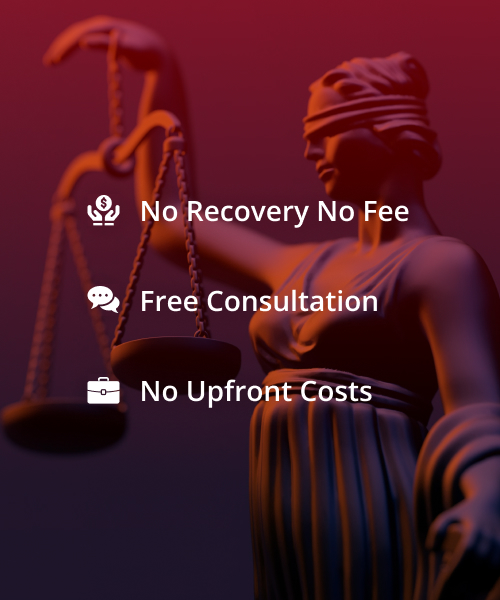- Free Case Evaluation: (305) 577-3777 Tap Here to Call Us
Distracted While Driving

Next time you are stuck in traffic – take a look around you. Most of the drivers in nearby cars are starring at their phones. At night, you can see the white light of a handheld device in nearly every car. Hardly anyone is paying attention to the road ahead. Most drivers are distracted. The latest statistics show that American’s traffic deaths are rising. The combination of automobiles and smartphones are contributing to the danger. Despite a media campaign of awareness, many drivers still text and drive or use their phone in other distracting ways.
Traffic fatalities on United States roads in 2016 increased to 37,461, according to the National Highway Traffic Safety Administration. That is a 5.6% increase over 2015 and 8.4% from 2014. According to the National Highway Traffic Safety Administration’s records, fatal distracted-driving crashes specifically involving cellphone use, increased to 14% in 2015 from 12% in 2011.
The Capital news service in Tallahassee Florida reported that more than 39,000 people were injured in Florida last year after being involved in a distracted driver crash. The month of April has been designated Distracted Driver Awareness month. The Florida Department of Highway Safety and Motor Vehicles keeps records on traffic crashes and vehicular legal infractions. Despite a ban on texting while driving, police have issued very few citations in part because texting is a secondary offence. This means that motorists must first have been stopped for some other violation.
While distracted driving is “anything that takes your hands off the wheel, your eyes of the road or mind off driving”, smart phones appear to be the greatest culprit. Think about: texting while driving requires all three categories of distraction. The driver takes their eyes off the road to look at the screen, their hands off the wheel to type the text and respond; this forces them to think about something other than driving. Texting while driving reduces the driver’s ability to react in order to stop or avoid a hazard.
Accident reconstructionist, road designers and vehicle engineers all consider perception distance, reaction distance and breaking distance when evaluating automobile safety. A vehicle traveling 60 miles per hour requires approximately 66 feet of perception distance, another 66 feet of reaction distance and over 227 feet of braking distance. This means it takes almost 360 feet to stop a car traveling at 60 miles per hour assuming a focused driver on a dry roadway. A driver that is texting, reading emails, or looking things up on their cellphone greatly increases the perception distance and reaction distance before hitting the brakes on their vehicle. This results in all manner of crashes from the simple, slow speed bumper tap in traffic to the disastrous highspeed highway fatalities.
In Florida, unlike many other states, there is no handheld cellular phone ban, there is no cellphone ban for school bus drivers, there is no cellphone ban for novice drivers and, text messaging while driving is only charged as a secondary infraction. While it will be easy to recommend that all of us contact our legislators and voice concern over these lax driving laws, in reality, often times the better way to enact change is in the Courts.
In Las Vegas, Nevada prosecutors charged a motorist who killed two people while speeding, and talking on her cellphone with a felony. With the advent of improved accessibility to cellphone records and the increased technology allowing access to smart phone usage history, civil personal injury actions against distracted drivers are becoming more and more common. Recent efforts in Florida have been made by victims of distracted drivers to sue for punitive damages in addition to compensatory damages. Punitive damages are designed to punish a wrong doer for intentionally harmful or criminal behavior. Florida Courts are beginning to recognize that when a defendant engages in conduct that is “fraudulent, malicious, deliberately violent or oppressive, or committed with such gross negligence as to indicate a wanton disregard to the rights of others” the award of punitive damages maybe appropriate. This standard comes from a 1994 Florida Supreme Court case. In 2011, a trial Court in Collier County, Florida allowed a punitive damage claim against a driver who was texting while driving that caused a death.
Florida Statute §316.305 “forbids the operator of a motor vehicle from manually typing or entering multiple letters, numbers, symbols or other characters into a wireless communications device or while sending or reading data in such device for the purpose of non-voice interpersonal communication, including, but not limited to, communication methods known as texting, emailing, and instant messaging”. The violation of this law is a traffic infraction not a criminal offence. It will be difficult for the distracted driver that was texting while driving to argue, after causing an accident, that that conduct was not intentional. It is this very illegal and unsafe intentional conduct which we, at Jeffrey R. Davis, P.A. believe will give rise to a claim for punitive damages, in the event of an accident causing serious injury or death.
Our goal is to promote safe driving and see that laws on the books regarding distracted drivers are strengthened.
Certain businesses, like AT&T have installed applications on their employee’s cellphones that make it impossible to operate their phone while the vehicle’s engine is activated. This means no texting and driving, no receiving phone calls, no surfing the web or other distracted driving conduct. This very same technology should exist to prevent all motor vehicles from allowing the operator or driver to text, receive or send emails or other manual phone operations while driving. It will save lives, avoid injuries and reduce crashes.
At Jeffrey R. Davis, P.A., we are a law firm that seeks to pursue safety as a business model. We believe that enforcement of laws relating to safe driving through appropriate civil claims and litigation is often a place where change for the better begins. If you or family member or friend have been injured by a distracted driver, please call Jeffrey R. Davis, P.A. to discuss this matter and receive a free consultation. Our firm specializes in the representation of injury victims throughout the state of Florida. Our bilingual staff will be available to assist you on a 24/7 basis.









